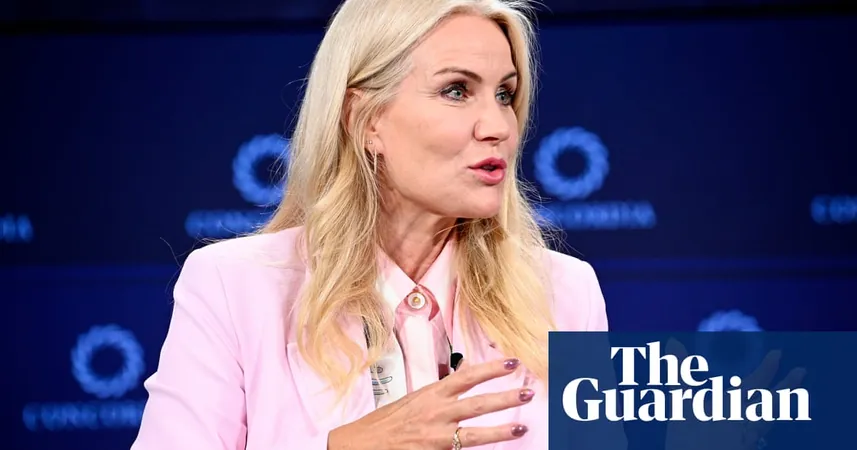
Major Shake-Up at Meta: Are Fact-Checkers a Thing of the Past?
2025-01-08
Author: Ken Lee
Introduction
In a bold and surprising move, Mark Zuckerberg announced that Meta, the parent company of Facebook, Instagram, and WhatsApp, will no longer rely on third-party fact-checkers to identify misleading content. Instead, the platform will shift its focus towards user-generated notes, a significant change that has drawn intense scrutiny from public safety advocates and social media analysts alike.
Background
Helle Thorning-Schmidt, co-chair of Meta's oversight board and former Prime Minister of Denmark, revealed that she and former president of global affairs, Nick Clegg, recognized that the company's content moderation systems had grown “too complex.” She emphasized that this complexity had led to “over-enforcement” in content moderation, prompting the need for a more streamlined approach.
Rationale for Change
Zuckerberg characterized the transition as a step towards enhancing free speech, especially ahead of Donald Trump’s anticipated return to political prominence. The decision was made public just days after Clegg’s resignation from Meta, who had served to develop the company's governance and oversight initiatives over the past six years.
Concerns Raised
“The problems with Zuckerberg’s announcement are substantial,” Thorning-Schmidt noted during an interview with the BBC. She expressed concerns over how this new approach could affect vulnerable groups, particularly regarding hate speech directed at LGBTQ+ communities and others. “We will be watching that space very carefully,” she assured.
Leadership Changes
With the departure of Clegg, Meta has appointed Joel Kaplan, who previously served in the Bush administration, as his replacement. This shift signals a potential change in the company's governing philosophy as it navigates a politically charged environment.
Industry Reactions
Linda Yaccarino, head of X (formerly Twitter), celebrated Meta’s policy shift, suggesting it aligns with a growing trend of user-driven truth-checking on social media platforms. At the recent CES technology show in Las Vegas, she proclaimed, “Welcome to the party!” referring to Meta’s decision to adopt community notes, reminiscent of X’s approach after Elon Musk took over.
Criticism and Defense
Critics have voiced serious concerns about this shift, arguing that it could exacerbate the spread of misinformation and undermine efforts to maintain a safe online environment. Online safety advocates are wary that the removal of established fact-checking processes might lead to unchecked harmful content circulating within Meta’s platforms.
Yaccarino defended the user-generated notes system, claiming it fosters accountability among users and minimizes the spread of misinformation in real-time. 'When a post is noted, it’s dramatically shared less,' she said, emphasizing the power of community intervention in moderating content.
Conclusion
This pivotal change at Meta raises crucial questions about the future of online discourse. Will the platform successfully navigate the rewards of free speech while protecting users from the potential pitfalls of misinformation? As these developments unfold, only time will tell how Meta’s bold experiment will reshape the social media landscape.






 Brasil (PT)
Brasil (PT)
 Canada (EN)
Canada (EN)
 Chile (ES)
Chile (ES)
 Česko (CS)
Česko (CS)
 대한민국 (KO)
대한민국 (KO)
 España (ES)
España (ES)
 France (FR)
France (FR)
 Hong Kong (EN)
Hong Kong (EN)
 Italia (IT)
Italia (IT)
 日本 (JA)
日本 (JA)
 Magyarország (HU)
Magyarország (HU)
 Norge (NO)
Norge (NO)
 Polska (PL)
Polska (PL)
 Schweiz (DE)
Schweiz (DE)
 Singapore (EN)
Singapore (EN)
 Sverige (SV)
Sverige (SV)
 Suomi (FI)
Suomi (FI)
 Türkiye (TR)
Türkiye (TR)
 الإمارات العربية المتحدة (AR)
الإمارات العربية المتحدة (AR)